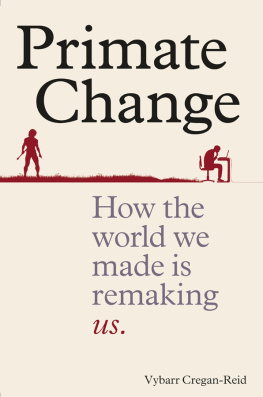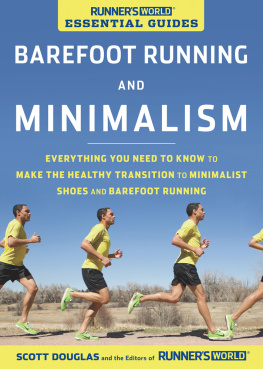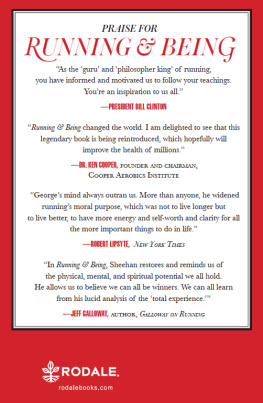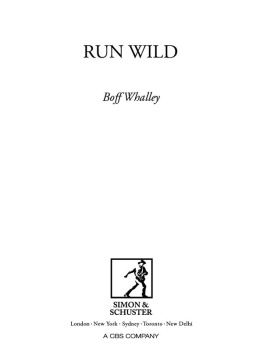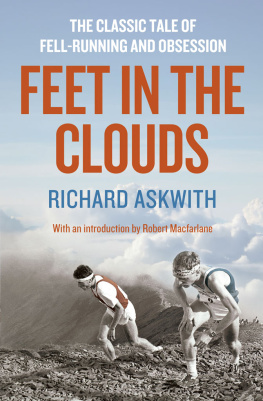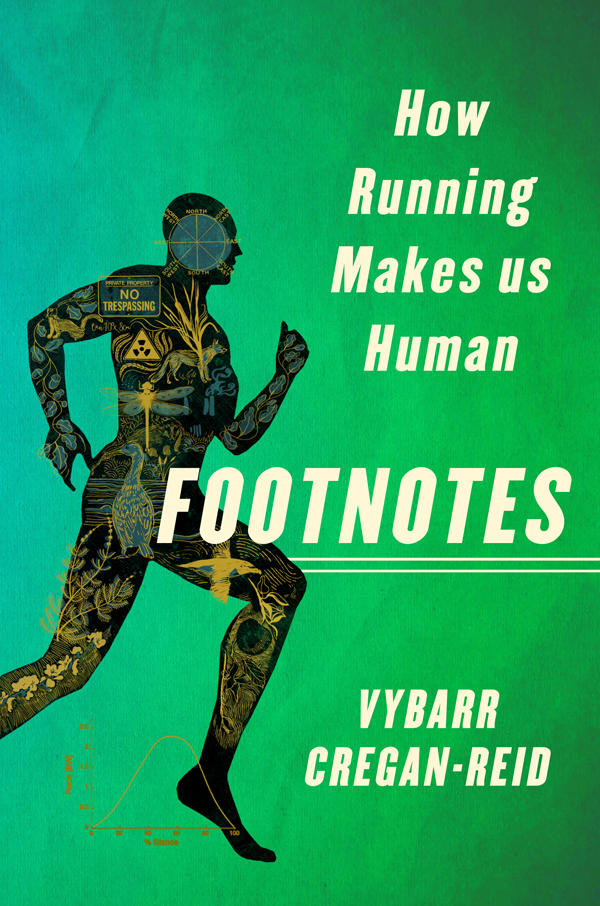Contents
Guide

The author and publisher have provided this e-book to you for your personal use only. You may not make this e-book publicly available in any way. Copyright infringement is against the law. If you believe the copy of this e-book you are reading infringes on the authors copyright, please notify the publisher at: us.macmillanusa.com/piracy.
For Adam
Life is always worth living, if one have such responsive sensibilities. But we of the highly educated classes (so called) have most of us got far, far away from Nature.
William James, On a Certain Kind of Blindness in Human Beings, 1899
We do not have a body; rather, we are bodily.
Martin Heidegger, 1961
If it be possible to compress into a sentence all that a man learns between twenty and forty, it is that all things merge in one another good into evil, generosity into justice, religion into politics, the year into the ages, the world into the universe.
Thomas Hardy, Journal , 1876
I am lost on Peckham Rye. Im running a seven-mile lasso: a few miles out, a big circle around the common, and the same miles back. I like this distance. I can just about get away with not taking any water and I dont have to worry too much about food before, during or after the run. But I am done in. It is that awful day when the plane trees seem to give off all their pollen in one great gasp. Plane-tree pollen particles are obese compared to those of other plants and trees. Londoners have to wander round for the entire day gouging it from their eyes. Its nasty stuff. It sticks to my face and gathers in the creases of my arms and neck. What havoc it must be causing in my lungs I can only guess, because they hum and whine like a legion of wasps trapped in a bell jar. Despite this, I am enjoying the run and I love coming to Peckham Rye because it seems to possess a kind of magic that makes the pasts, both real and imaginary, present.
As a child the poet and seer William Blake had visions of angels in these trees. Today, jewels of broken glass are strewn across pavements and there are queues outside the locksmiths because there have been riots. The sun warms the earth beneath my feet, everything looks saturated with pigment, and if I can keep going long and steady enough a wave of ecstasy will soon break over me. And when that comes, the burrs, the static and the clamour of the everyday will be washed clean from me. Virginia Woolf called them moments of being: those few seconds when we are only ourselves, and our senses reverberate with the pleasure of the present. It is when what is buried beneath the down of the everyday becomes immediate in a way that is raw and urgent and overwhelming. (Runners call it the high, and when it kicks in, you feel calm and invincible, super-sensitive to your surroundings, and you know that at that moment there is no one else in the world enjoying a better experience.)
It is 2011, and although I have been running badly for years, I have suddenly found myself able to access longer distances. So every day I run, and I run, and I run. Compelled to do so, but unsure why, I dont think I have paused to consider it in any detail until today and my encounter with a sprite of Peckham Rye. Yet here I am, many miles from home, with nothing on my feet, whispering along on the grass in the summer sun.
With pizzicato steps I continue along the worn pathway. I am now skirting the edge of the Rye an unfenced enclosure, centuries old, that has withstood waves of suburban expansion in south London. It is ringed by estate agents, petrol stations, eighteenth-century villas, and post-war council blocks built on the bones of bombed houses. There are whitewashed walls garlanded with ribbons of razor wire and from high fences the giraffe-heads of CCTV cameras peer down from their pens, glancing side to side. Traffic and concrete and plane trees to my right; tame, trim grassland to my left.
Unlike the young William Blake, I am not expecting wraiths and angels, but as an eight-year-old in 1766, he had walked here on a summers day from his home on Broad Street in Soho. The little rogue had wandered for eight or ten miles and must have been exhausted on reaching the climb of Dulwich Hill. The vision that he saw in the trees became the core of his beliefs that ran against the grain in the high Age of Reason in the eighteenth century it was the beginning of a life-long commitment to the ideal, to worlds above, beyond and beneath and it formed the basis of his character as a mystic. And too, it was the beginning of a life lived on the very edges of sanity.
From angels to devils: the novelist Muriel Spark used the Rye as the stage on which her demonic antihero Dougal Douglas (a shabby, suburban Lucifer) played puppet-master to those around him; charming them into sexual liaisons, immoral behaviour and murder, before disappearing entirely.
All of this is mixing in my blood: the magic, the alchemy, the feel of the place firing up through the 200,000 subcutaneous receptors in my feet; the smells and the colours seem overwhelming, and the experience feels transformative, even shamanic.
I am in the final few miles of the run. My body swings back and forth to the rhythm of its own movement. I have made it to one of the quiet side-streets off the park, where approaching me is a young preschool boy, the sprite, a few paces ahead of his mother. A credit to his parents, he moves aside to let me pass. I smile. As I do, he squints, the sun hard in his face; eyeing me, he calls out, Mum?, his phrasing is musical, like he is singing the square-root symbol, Whats that man running away from?
I splutter a laugh, and try to select from my drop-down menu of clever responses, but nothing comes. Im already gone so I quickly shout over my shoulder, Old age! But the question clings like chewing gum. I have heard it before. I am sure I have heard it somewhere before.
For the rest of the run, and for hours, even days, afterwards I think about that question. I manage to come up with some answers: Im running from my asthma, emails, responsibilities, middle age, my chair, my desk, my chores Im pleased with the benign nature of these causes; I dont mind being their quarry because I think I understand them. Im on the run from my genetic inheritance, too, I think.
My father was not at all active, and although he boasted that he was as strong as an ox he didnt even make it close to retirement. In his early fifties he entered into a seemingly constant cycle of strokes and heart attacks. He was without speech for the last ten years of his life. He died when he was just 62, but seemed impossibly older than that the last time I saw him.
In my early life he had been either a figure of indulgence or violent and unpredictable rage, so I never got to know him then. By my teens, he was practically mute. His inability to communicate made him all the more unknowable to me, his character and personality hidden behind a gravestone facade that could express few of the nuances between joy and sadness. His most common emotion was that of abject frustration at the crossed wires between what was in his head and what came out of his mouth. A man who had written hundreds of poems, played chess for his country, reduced by his mid-fifties to someone who expressed childish wonder at the magical abilities of a TV remote control. Though I try not to think about it, this future is surely one of the things that I am running away from.
* * *
As time went on, other, darker, motivations for running began to come into focus, and I needed to understand them.


